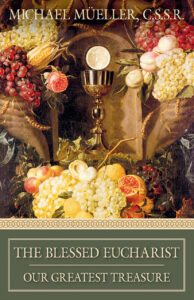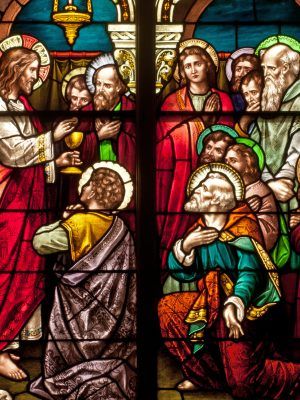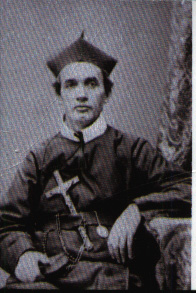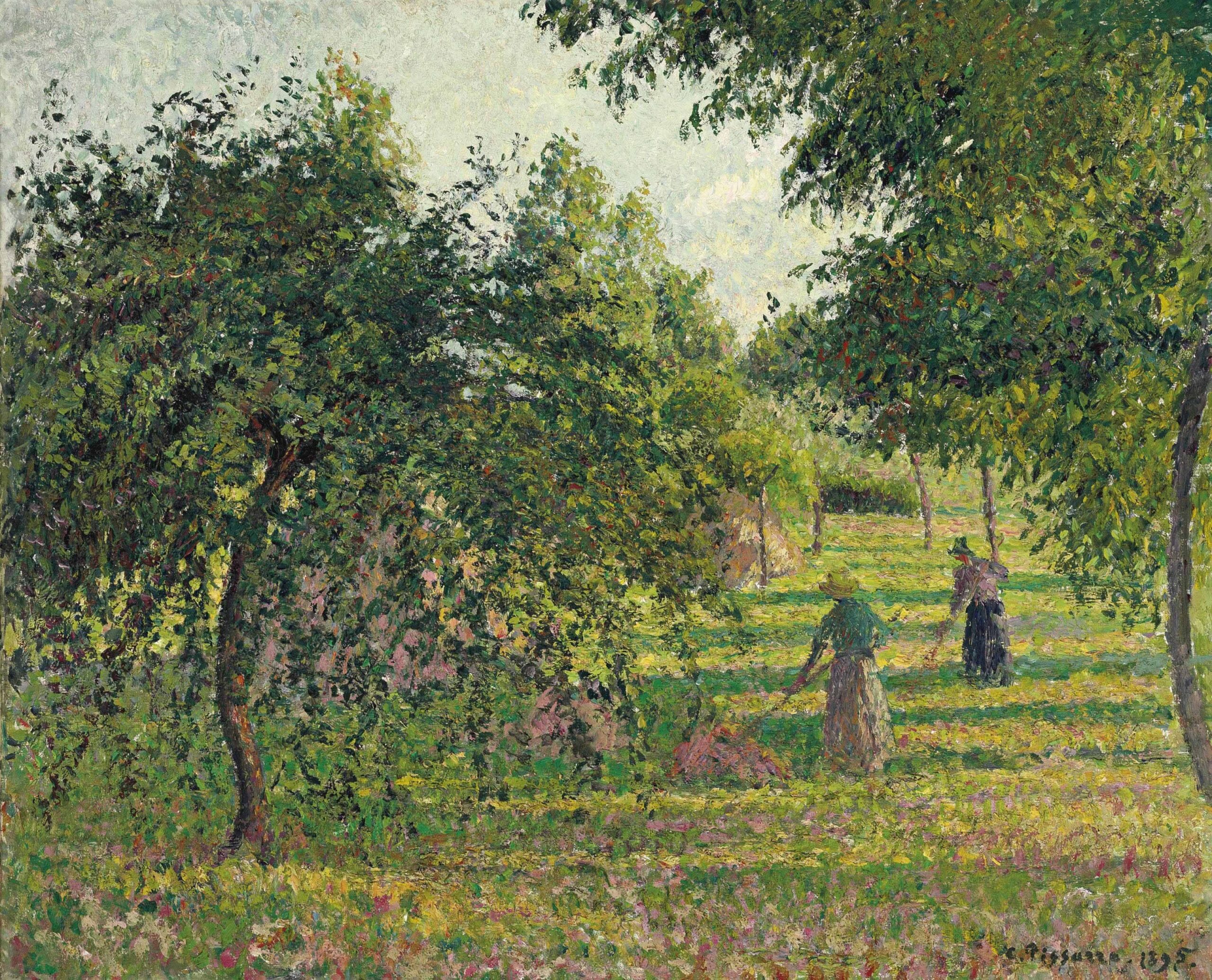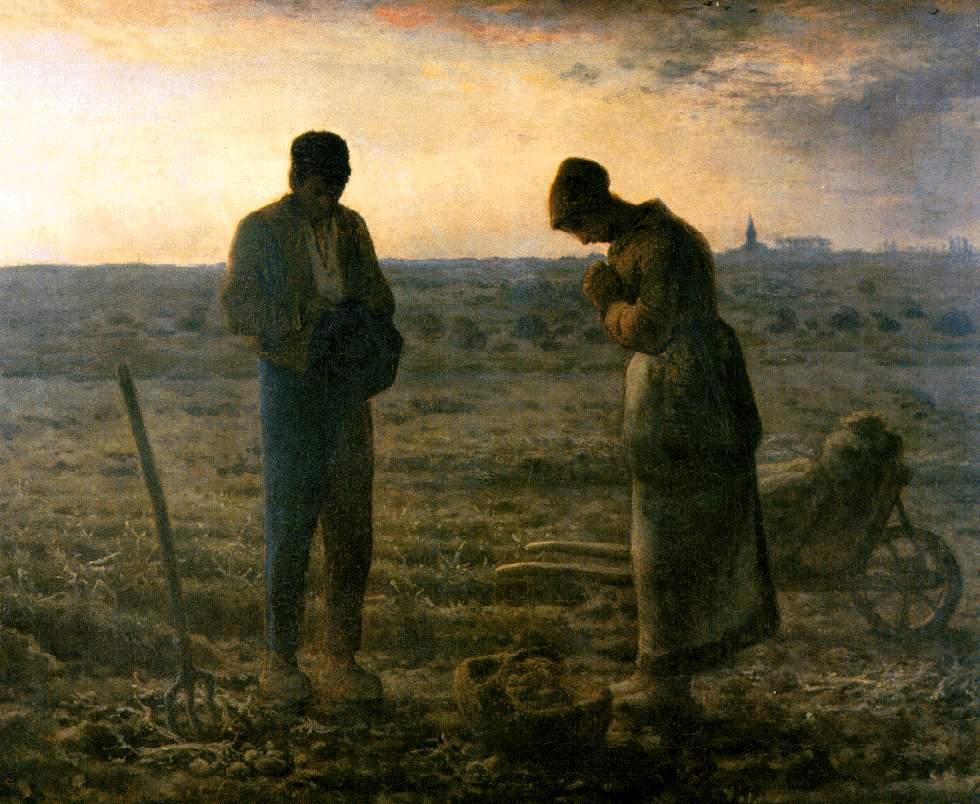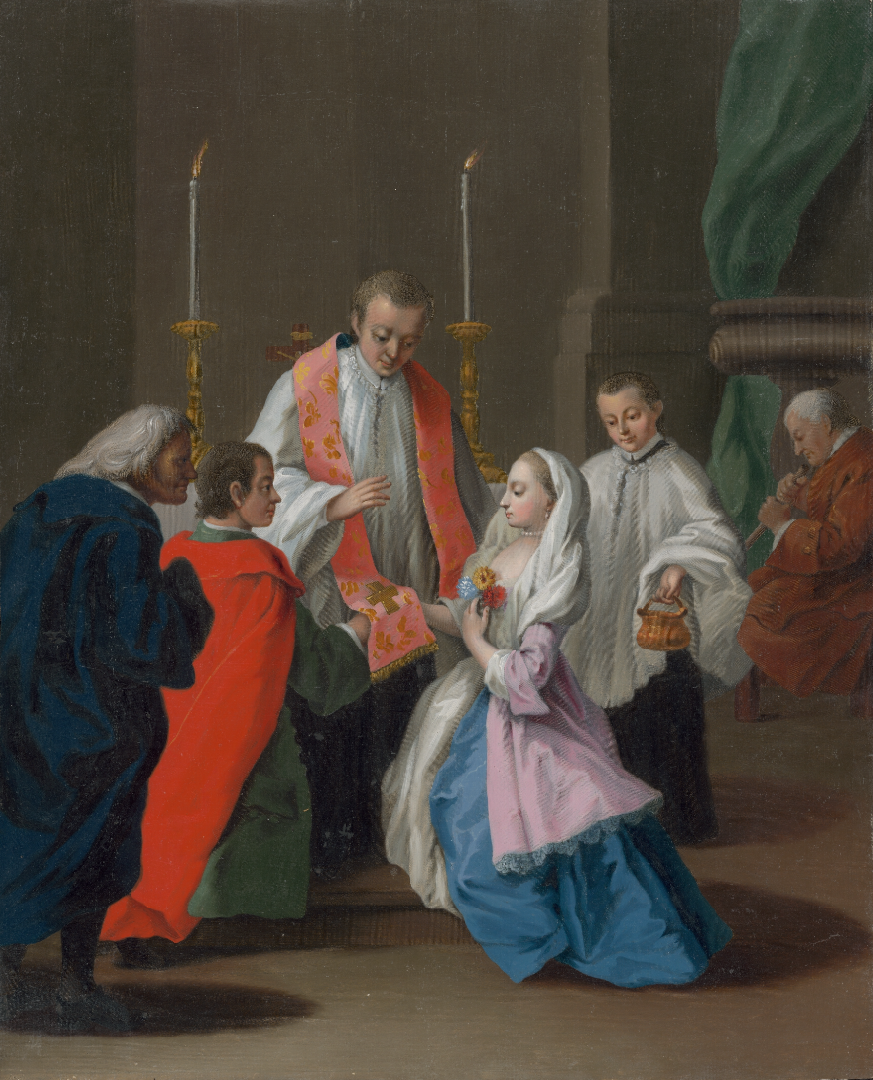In a preceding chapter I treated of the great love which Jesus Christ has shown us in the institution of the Holy Eucharist, and because love demands love in return, I went on to prove how this condescension of His places us under the obligation of visiting Him frequently and of paying reverence to Him in this Sacrament of His love. Jesus Christ, however, is not satisfied with the visits and reverence which we pay to Him. He wishes especially that we should receive Him in Holy Communion; this is indeed His chief object in remaining among us under the Sacramental species.
Now, if you ask why it is that Jesus Christ wishes us to receive Him, I answer, it is because He so ardently desires to be united to us. Yes, strange as it may seem, Our Lord’s Heart yearns to be united to ours. He burns with the desire of being loved by us. Holy Scripture represents Him as standing at the door of our hearts, knocking until we open to Him. This great desire of Jesus Christ, to enter into our hearts in Holy Communion, will be the subject of our present consideration; but I must begin by acknowledging my entire inability to describe it as it really is. That indeed would simply be impossible. No tongue can express the longing of our Saviour to unite Himself to us. I will merely endeavor to point out some of the ways in which He manifests this desire, and I am sure that this effort of mine, as well as your devout attention, dear Reader, will cause great joy to the loving Heart of Jesus, whose desire that we should know His love is as great as His love itself. The first proof, then, of Our Lord’s great longing to enter into our hearts in Holy Communion is His own declaration.
When He was about to institute the Holy Eucharist, He said to His disciples: “With desire I have desired to eat this Pasch with you,” thereby expressing, according to the commentary of St. Lawrence Justinian, His most ardent wish, His most earnest desire to unite Himself to us in Holy Communion. And what He expressed in so touching a manner at the Last Supper He as often declared in other ways.
One day, as St. Gertrude was meditating on the greatness of the love which made the Lord and King of Heaven find His delight in the society of the children of men, our Saviour illustrated what seemed to her so incomprehensible by the following comparison: The son of a king is surely much higher and greater than the children who run about the streets; he has in his father’s palace everything that can delight and gratify him; yet, if you give him the choice either to go out and play with the children in the street or to stay at home amid the splendors of his father’s court, he will certainly prefer the former. “Thus, I too,” said Our Lord, “find my pleasure in being with you; and having instituted the Blessed Sacrament for this end, anyone who prevents a soul from receiving Me, deprives Me of a great pleasure.” He also said to St. Matilda: “Look at the bees and see with what eagerness they seek the honey-flowers, yet know that My desire to come to you in Holy Communion is far greater.” Nay, He declared to St. Margaret of Cortona that He would even reward her confessor, and that richly, too, for having advised her to receive Holy Communion frequently; and Father Antonio Torres, as we read in his life, appeared shortly after death in great splendor to a certain person and revealed to him that God had increased his glory in Heaven in a special manner for [his] having allowed frequent Communion to his penitents. Most remarkable is that promise of Jesus Christ by which He induced the Blessed Prudentiana Zagnoni (a nun of the order of St. Clare) to receive the Blessed Sacrament frequently. “If thou wilt receive Me often in Holy Communion,” said He, “I will forget all thy ingratitude towards Me.”
This article is taken from a chapter in The Blessed Eucharist by Fr. Michael Mueller, which is available from TAN Books.
